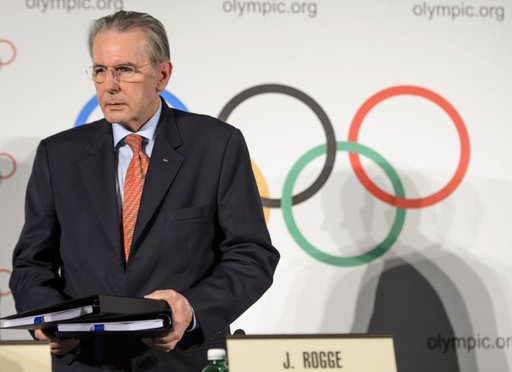There are precisely two months to go in Jacques Rogge’s term as president of the International Olympic Committee (IOC). He is not, at least in public, particularly reflective. History will be as it is.

At the end of a recent teleconference with reporters from around the world, the president was asked to assess the highlights and disappointments of his 12 years in office. For once, he seized the moment.
The “biggest satisfaction,” he allowed, was that he was “able to positively describe” the six editions of the Games on his watch, three Summer and three Winter, as well as the inaugural Summer and Winter Youth Olympic Games, as “magnificent Games or exceptional Games.”
He added, in a nod to his predecessor, Juan Antonio Samaranch, who served for 21 years, “You know I will never say, ‘The best-ever.'” Rogge then went on, “The worst day was definitely the death of Nodar Kumaritashvili,” the Georgian luger killed in a training accident before the opening ceremony of the 2010 Vancouver Olympics, adding, “This is definitely something I will not forget.”
At an all-members assembly Sept. 10, the IOC will elect Rogge’s successor. Six candidates are in the running to replace him: Ukraine’s Sergei Bubka; C.K. Wu of Chinese Taipei; Switzerland’s Denis Oswald; Germany’s Thomas Bach; Singapore’s Ser Miang Ng; and Puerto Rico’s Richard Carrion.
Two of the presidential candidates are Asian; Carrion is from the Western Hemisphere. All but one of the IOC’s presidents — Avery Brundage, an American — have been European. Asked by a reporter from Singapore if it would “be good for the IOC to have a non-European president,” Rogge replied:
“I don’t think this factor will play in the election of my successor. My colleagues will go for the man they think is the most able to lead the IOC. They will not not [factor in] nationality or continent.”
Asked a few minutes later about the influence of the IOC member and powerbroker Sheikh Ahmad Al-Fahad Al-Sabah of Kuwait, the president of the Association of the National Olympic Committees, who has played a key role in several recent IOC elections Rogge said, “I have no reason of concern,” adding, “I have a very good relationship with him.”
Under IOC rules, Rogge is eligible to stay on as a member until 2022, when he would be 80. He said, however, when his successor is elected he will resign his IOC membership and become an honorary member.
It would “not be wise or advisable,” he said, to have the incumbent and past IOC president both “running around … and making comments.” He also said he would “not seek to … intervene in the business of the IOC and my successor.” He added, “I will be probably an elder statesman but probably not more than that.”
Rogge noted the following developments:
- The deal sealed last year between the U.S. Olympic Committee and IOC on certain revenue-sharing matters “definitely paved the way” for the nomination announced recently of USOC board chairman Larry Probst to IOC membership. Probst is expected to be made an IOC member at the Buenos Aires session, along with eight others, among them Russian Olympic Committee boss Alexander Zhukov. “We absolutely want a good relationship with the USOC,” Rogge said.
- The three 2020 bids — Madrid, Tokyo and Istanbul — are “very close to each other” and the final weeks “will be important.” The IOC will pick the 2020 city on Sept. 7, also at the Buenos Aires assembly.
- Expressed confidence in the operational readiness and security preparations for the 2014 Sochi Olympics: “I am sure they will deliver.”
- Observed that while the leaders of the international wrestling federation, which goes by the acronym FILA, had done “good things,” it “remains to be seen” whether wrestling, squash or the combined baseball and softball bid will make it onto the 2020 program. “You understand I will be neutral,” he said. This, too, is a decision to be taken in Buenos Aires.
- Rogge said that while the IOC has “encouraged our friends” at the 2016 Rio organizing committee to “accelerate” preparations, “there is no concern whatsoever” with the Games there just three years away.
Rogge was also asked an intriguing question — by a Brazilian reporter — about the recent demonstrations there linked to the Confederations Cup soccer tournament. Were those protests a sign that “big sporting events will have to change as well?”
“Well,” Rogge said, “definitely we have to explain very clearly to all the public that the investment made in the Olympic Games is going to be for sustainable legacy for generations to come.
“That is the message that we are sending. We will declare it very clearly in the future. Yes, the Games are a force for the good. Yes, the Games improve society.
“… Most people,” he said, “don’t know exactly what the investments are.”
This article by Alan Abrahamson first appeared in the blog, The Sport Intern. The editor is Karl Heinz-Huba of Lorsch, Germany. He can be reached at ISMG@aol.com. The article is reprinted here with permission of Mr. Heinz-Huba.